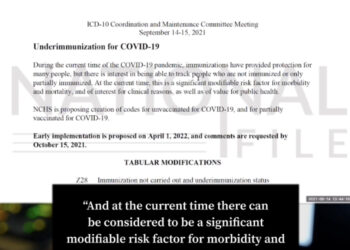Last Updated on April 18, 2022
CNN’s Brian Stelter, who has consistently supported censorship of those critical of those critical of the corporate media apparatus, is again advocating for increased censorship on Twitter. Stelter used “misinformation” and “disinformation” as a justification for censorship, citing work from professors at two elite universities. Stelter has often said that the media needs to be more trustworthy, but has never taken responsibility for corporate media’s repeated lies and debunked reporting.
In a recent segment, Stelter asserted that Republicans and conservatives are more likely to be censored because they are more likely to share fake news. “Thus with social media’s platforms, policies aimed at reducing nonsense and boosting real news, would ensnare Republican users more often,” Stelter said on his show, Reliable Sources.
Stelter then continued to talk about how “free speech” and “cancel culture narratives” are central to GOP and “Trumpian” fundraising efforts. He added that Elon Musk’s attempted hostile takeover of Twitter is built on this premise.
One of the academics responsible for the research that Stelter cited responded to the tweet above, which was initially shared by Tim Graham of Newsbusters.
If you want to read the actual research study, see this thread https://t.co/Mfd9UI3MhW
— David G. Rand (@DG_Rand) April 18, 2022
Since this research is being shared on a major network, albeit on a show with dismally poor ratings, it is worth looking into the research and those conducting it.
According to his Twitter profile, David G. Rand is a professor at MIT who specializes in “misinformation and fake news”, among other social topics. He also has he/him pronouns included in his bio.
Stelter, as well as the cited academics, begin with the premise that there is broad “bipartisan support” for social media networks policing fake news. This begs the question: who determines what is considered fake?
Rand also asserts that right leaning users share stories from “lower quality news sources.”
Even more than in past work, the Republicans shared links from MUCH lower quality news sources than Democrats – with source quality judged either by fact-checkers or a politically balanced set of laypeople (heading off claims of bias in the evaluation of what counts as misinfo) pic.twitter.com/tas5FLMsHi
— David G. Rand (@DG_Rand) April 14, 2022
To determine the quality of a news source, Rand cited such things as judgment of fact-checkers.
Stelter’s employer, as well as other corporate outlets, have had many of their major stories debunked over the last several years. This includes the Trump-Russia saga, Covington high school controversy, Wuhan lab leak, and the Hunter Biden laptop story, among many others.
Supposed fact-checkers have also not been immune from sharing biased and even outright false information. PolitiFact and Snopes, two popular fact-checkers, have repeatedly misled readers looking for the truth.
We're thankful that after we posted this video in May, Jen Psaki finally has a fact-check page on PolitiFact, even though it only has one fact-check on her. pic.twitter.com/Z7UYgx8Rwq
— MRC NewsBusters (@newsbusters) November 25, 2021
This video from the Media Research Center explains something called “selection bias”, which involves fact checkers picking and choosing what they want to cover. The example used is that PolitiFact has fact-checked assertions about Joe Biden about eight times more than they have fact-checked statements from him since he was inaugurated. PolitiFact also took nearly a year to start a fact-check page for Biden press secretary Jen Psaki. Meanwhile, they had established a fact-check page for former Trump press secretary Sarah Huckabee Sanders before she officially assumed that position.




















